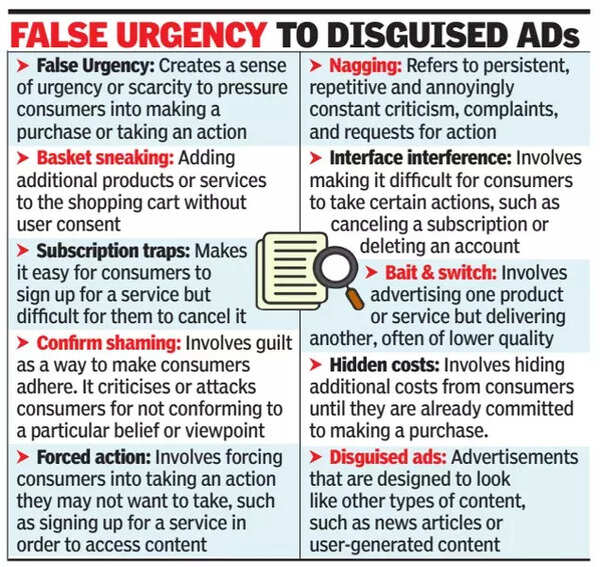The ministry of consumer affairs has issued a discussion paper suggesting new guidelines that check the proliferation of what are called dark patterns – to trick customers into doing something they originally did not intend to, or coercing them into certain actions.
Kailash Nadh, CTO of India’s largest stock broker Zerodha, said dark patterns, or predatory practices that border on exploitation, have been a bane of consumer technology and services. “I am elated to see a human-centric legal framework emerge that recognises this menace. After net neutrality, this is perhaps the first technology policy that I fully and wholeheartedly agree with,” he said.

A Zomato spokesperson said curbing patterns that are deceptive or misleading to consumers might help in shaping a safe and trusted online environment.
Dark patterns include falsely stating or implying a sense of urgency or scarcity to mislead a user into making an immediate purchase, such as when an online purchase site falsely shows that very few items of a product or seats on a plane are left.
Basket sneaking includes adding additional items such as products, services, and payments to charity/donation at the time of checkout from a platform without the consent of the user, such that the total amount payable by the user is more than the amount payable for the products/services chosen by the user (see graphic).
Regulators in the EU, US and UK have acted on such unfair practices.

